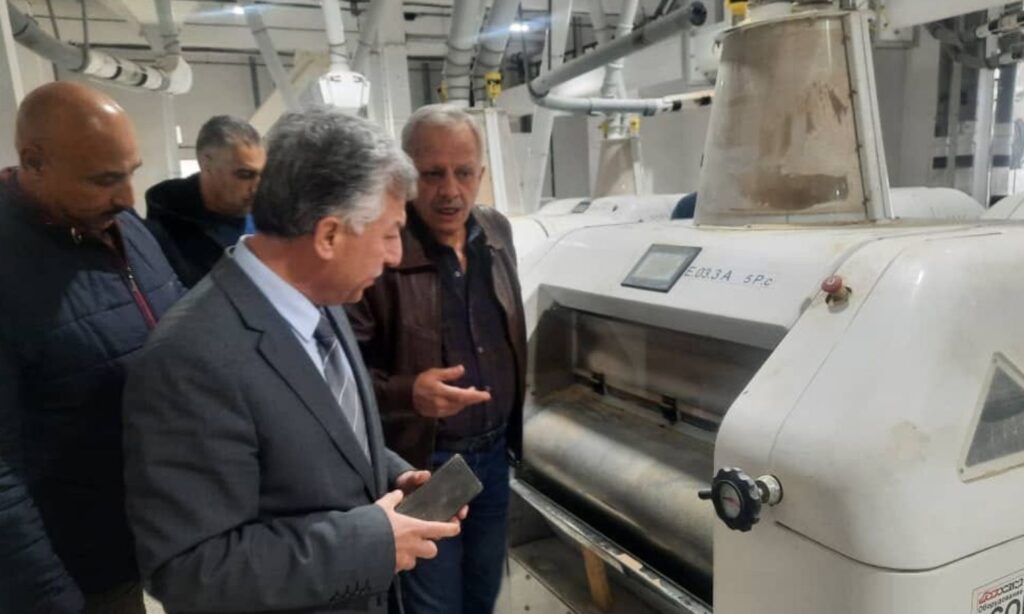The Director of the General Establishment for Syrian Grains, Sami Halil, announced a joint plan between the Syrian government and Russia aimed at restoring and constructing many destroyed mills and silos in Syria.
In a statement to the government newspaper Tishreen today, Sunday, July 7, Halil said that the plan also includes transferring the necessary Russian technology for operating and production lines in Syrian silos and mills.
Within this plan, the Tel Kalakh mill in the Homs countryside, which Russia rebuilt, will be operational next August. It is considered one of the largest mills in Syria, producing about 600 tons of flour daily during the trial phase.
Halil indicated that this plan would increase flour production, meet the country’s needs for the material, and save on transportation and shipping costs of flour between provinces, according to his statement.
The areas under regime control require approximately 5200 tons of flour daily, secured through 22 public mills and 16 private mills.
Wheat from Russia as well
For years, the regime’s government has been securing wheat from Russia through various methods, including rarely disclosed bilateral agreements, tenders issued by the General Establishment for Grains in Syria to purchase wheat, or quantities sent by Russia labeled as “aid,” or Moscow’s “theft” of Ukrainian wheat and sending part of it to Syria, as revealed by Ukrainian officials and news agencies, despite the regime’s denial.
During its years in Syria, Moscow has achieved numerous gains in terms of military dominance and economic control over prominent sectors in Syria, with investment contracts extending up to 49 years.
For decades, some Russian companies have been active in Syria’s investment sector, but it surged after 2015, when Russia signed several agreements with the regime, allowing it to control the Tartus port, extract phosphates, explore for oil and gas, establish wheat silos, and initiate projects in various sectors, some of which have yet to see the light of day.
Syria is not considered a successful investment target for Russia, according to several experts, as Moscow has not completed even its old economic agreements but has rather secured the contracts and its place in them to prevent the regime from conceding these projects to other parties.











